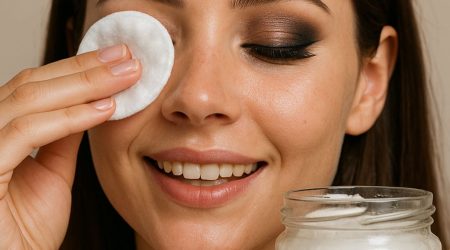23
Apr
How to Make Shampoo at Home with Natural Ingredients
Are you tired of chemical-laden shampoos that leave your hair dry, dull, or irritated? Learning how to make shampoo at home with natural ingredients can be a game-changer for your hair health. It’s not only budget-friendly but also allows you to control what goes on your scalp. In this guide, we’ll walk you through easy DIY shampoo recipes using natural ingredients you probably already have in your kitchen.
Q: Does homemade shampoo lather like regular shampoo?
A: It lathers less because it doesn’t contain synthetic foaming agents, but it still cleanses effectively.
Q: Can I store homemade shampoo for long?
A: It’s best to make small batches. Store for 1-2 weeks or refrigerate to extend shelf life.
Q: How often should I use it?
A: 2–3 times a week is ideal, but it varies by hair type and needs.
Why Choose Natural Homemade Shampoo?
Store-bought shampoos often contain sulfates, parabens, synthetic fragrances, and silicones. These can strip your hair of its natural oils, cause buildup, or even trigger allergies.Benefits of homemade shampoo:
-Gentle on the crown and hair. -No harsh chemicals or synthetic spice. -Eco-friendly and sustainable. - Customizable for different hair types.Basic Homemade Shampoo Recipe
Ingredients:
- 1/2 cup liquid Castile soap (unscented) - 1 tablespoon coconut oil (moisturizes and nourishes) - 1 teaspoon honey (adds shine and softness) - 10 drops of essential oil (e.g., lavender, tea tree, or rosemary) - 1/4 cup distilled water.Instructions:
1. In a clean bottle, add the liquid Castile soap and water. 2. Mix in coconut oil and honey. 3. Add your choice of essential oil. 4. Shake well before each use. ✅ Shelf life: Store in a cool, dry place for up to 2 weeks. Shake before every use, as ingredients may separate.Natural Shampoo Variations by Hair Type
- For Oily Hair: - Add 1 tbsp Apple Cider Vinegar (balances scalp pH) - Use Tea Tree Oil (controls excess oil and dandruff)
- For Dry Hair: - Use Olive Oil or Almond Oil instead of coconut oil - Add Aloe Vera gel for extra hydration
- For Dandruff: - Add 2 tsp Neem Powder** or Fenugreek paste. - Use Rosemary Oil for its anti-fungal properties.
- For Hair Growth: - Infuse shampoo with Amla (Indian gooseberry) - Add Castor oil for Thickness
Tips for Best Results:
- Do a patch test before full use to avoid allergic reactions. - Use Natural Conditioner like diluted apple cider vinegar rinse after shampooing. - Give your hair time to acclimate to natural soap( 1- 2 weeks). Frequently Asked Questions (FAQs)
Frequently Asked Questions (FAQs)
Q: Does homemade shampoo lather like regular shampoo?
A: It lathers less because it doesn’t contain synthetic foaming agents, but it still cleanses effectively.
Q: Can I store homemade shampoo for long?
A: It’s best to make small batches. Store for 1-2 weeks or refrigerate to extend shelf life.
Q: How often should I use it?
A: 2–3 times a week is ideal, but it varies by hair type and needs.
Final Thoughts
Making shampoo at home with natural ingredients is a simple, rewarding step toward healthier hair and a more sustainable lifestyle. With just a few kitchen staples, you can nourish your scalp and hair without harsh chemicals. Whether you're battling dandruff, dryness, or just want a gentler routine—there’s a DIY shampoo recipe that’s right for you.Share this post
RELATED
Posts
How to prep your skin before makeup?
Your makeup is only as good as the canvas underneath. If you’ve ever struggled with patchy foundation, creased concealer, or uneven texture, the real culprit might not be your products—it could be your skin prep. Knowing how to prep your...
Is Coconut oil good for makeup removal?
If you're on the hunt for a natural, effective, and affordable makeup remover, you’ve probably heard about coconut oil. But is coconut oil good for makeup removal?
Yes—coconut oil is not only good, it's excellent for removing even stubborn makeup like...





Comments (2)
Very good https://shorturl.at/2breu
Very good https://shorturl.at/2breu